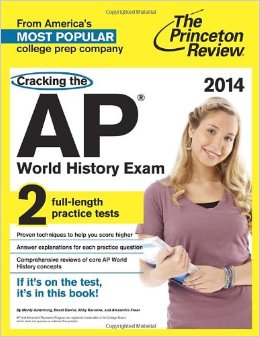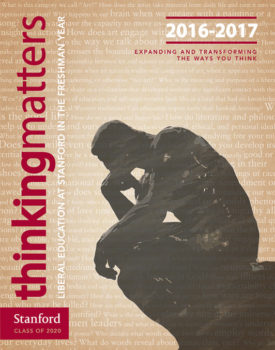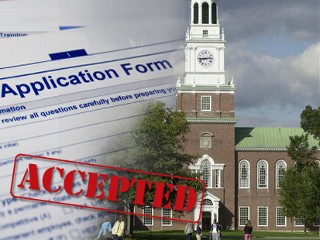
When it comes to college admissions, the volume of information available on the web, from school officials, and in the rumor network is overwhelming. Worse yet, most of the information is vague and off the mark. I have been a private consultant to middle and upper middle class students from the top high schools in Houston, Texas, and all over the globe for the last 15 years or so. My father and partner, Dr. Marshall Shumsky, has been one of the leading college admissions advisors for 30 years. He is a former professor and admissions committee member at 2 elite universities: The University of Virginia and Northwestern University. We have guided thousands of students to acceptance at their dream school including Harvard, Princeton, Stanford, UC-Berkeley, and many more.
Together, we have spent thousands of hours researching, gathering data, and speaking with applicants, families, and admissions personnel over the last 3 decades. Our experiences and knowledge-base has led some to call us, “America’s top experts on college admission.” We’ve been profiled by The New York Times, Money Magazine, and ABC News because of our unmatched record of success. Further, we have been hired to teach and train students and staff at private and boarding schools, as well as in the public school systems of the Los Angeles Unified School District, Houston Independent School District, and School District of the City of New York.
Our information and suggestions are not perfect, but they will certainly go a long way in leading you much closer to admission at your dream colleges and universities. So, without further ado, here is how you make yourself a very good candidate to a top 50 school.
1. Develop your skills and talents to elite level quality:
If you want to give yourself a chance at the most competitive colleges and universities in the U.S. and globally, you need special talents. Your talent need not be elite academic performance, as athletic, performing and visual art skill, and career/vocational skills are equally attractive to college admissions staffs. However, when you are aiming at the most competitive colleges and your dream school, you need to have professional caliber skills and talents to separate your application from the herds of highly qualified others.
What exactly does elite quality skill mean?
If you are an academic talent, then you need to complete independent research and study in your area of academic interest. Publish articles in academic journals or create independent projects or papers of depth and quality that go way above and beyond what you produce for class assignments. For example, one client of ours several years ago was a middling student at his very high quality private high school. However, he was an academic superstar in his favorite subject of physics. By 9th grade, he was a research assistant in the physics lab of a local university. In the  summer prior to 12th grade, he co-authored a paper with a PhD student that was accepted by a physics academic journal. Even though he was in the middle ranks of his high school class and his grades were significantly lower than the usual elite college applicant, he was accepted by Princeton and Stanford.
summer prior to 12th grade, he co-authored a paper with a PhD student that was accepted by a physics academic journal. Even though he was in the middle ranks of his high school class and his grades were significantly lower than the usual elite college applicant, he was accepted by Princeton and Stanford.
Athletic and performing arts superstars are similarly attractive to top colleges. We have had a number of elite athletes as clients over the years and even though many of them were bright and solid students, only one of them was also an elite academic performer. She, a junior Olympic swimmer, was accepted to and enrolled at Stanford. Others were not quite so outstanding in class, but still had offers from nearly every elite institution in the country. Duke, Harvard, Princeton, Rice, Vanderbilt, Georgetown, just to name a few, have tracked down and rolled out the red carpet for our clients because they were elite athletes who possessed strong, but not exceptional, academic records as well.
Actors, violin players, photographers, and Rock and Rollers, have all found their way to elite universities on the basis  of their artistic talent. One female client was a B and C student in the Advanced Placement courses of her excellent public high school. She was solidly in the 3rd quarter of her graduating class and acquired a 30 on her ACT. However, she was a creative writing superstar who had published a book of short stories that captured some national attention, while in high school. She had a plethora of universities that were bidding for her enrollment and she chose Harvard because of the opportunity to work on the Lampoon comedy magazine.
of their artistic talent. One female client was a B and C student in the Advanced Placement courses of her excellent public high school. She was solidly in the 3rd quarter of her graduating class and acquired a 30 on her ACT. However, she was a creative writing superstar who had published a book of short stories that captured some national attention, while in high school. She had a plethora of universities that were bidding for her enrollment and she chose Harvard because of the opportunity to work on the Lampoon comedy magazine.
A jazz saxophone player who worked with us some years ago ended up at Northwestern University, despite not taking one class at the honors or AP level in high school. He was a very average student at his solid but not spectacular private high school. Yet, by age 16, he had played with a professional jazz quartet on a summer tour of European capitals. His elite musical abilities gained him entry to the top colleges in America.
Schools like Harvard, MIT, Columbia, Stanford and no longer look for valedictorians and those with perfect SAT scores. There are thousands of such students throughout the U.S. and globally. What the most competitive colleges and universities want are students who are superstars. A perfect academic record is not proof of elite abilities; a track record of exceptional achievements is the way to acceptance.
2. Broaden Your Life Experiences:
There are hundreds of thousands of highly qualified middle and upper middle class applicants to your dream school and the other top 50 colleges in the U.S. Nearly every single application from these students will look the same from a college admissions staff member’s perspective. Each applicant will be in the top reaches of their high school class rank. All will have strong SAT or ACT scores, with most acquiring scores in the 90th percentile or above. Some will play sports, others will have attended college summer courses or traveled extensively for cultural exchange. A portion will have won high school academic or artistic competitions in math, computer science, foreign language, or visual and performing arts. All will have completed community service projects with local organizations like the food bank, homeless support groups, or services for the disabled or elderly.
Many more will be members of student government, speech and debate teams, model UNs, and will write or produce content for student publications and media channels. On paper, these students will look better than their high school classmates and will likely have nice recommendations from teachers, counselors, and adults in the community. Yet, nearly all of them will get rejected from their top choice colleges. What did they do wrong?
First, they made the mistake of doing what everyone else is doing. There are no real secrets in college admissions. Everything that goes on in your high school is going on at every middle class high school in the U.S. All the clubs, activities, and community service work that parents and school staff emphasize all add up to a mass of applications that all look the same. If you want to increase your odds of admission at the most competitive colleges, then you need to break the mold.
Besides being a superstar in academic, artistic, or athletic domains, your best bet at catching the attention of an admissions staff member at a highly competitive college is to broaden your life experiences beyond the usual bubble of middle class life. Very few middle class students have the courage to really challenge themselves and push beyond their comfort zone. But, if you can somehow find the courage and the means, you will be rewarded for your efforts.
What kind of experiences am I talking about?
If you want to improve your portfolio and get accepted by your dream school, then you might begin by working with the most vulnerable and least liked portion of the population. Go to your local jail and start teaching, supporting, or mentoring the inmates. Many of them will be your age or not much older, but will have none of your polish, blessings, or opportunities. You can help them. Give them some of your wisdom, lend them a shoulder or an ear, teach them how to support themselves with basic computer, language, or mathematical skills, so that they don’t end up back in prison after release.
Are you concerned about diversity and the fortunes of our newest immigrants? Then reach out to their communities
and help. Mentor an elementary school student from El Salvador and take him or her under your wing. Spend time with your new buddy, take him or her to a movie, to a ballgame, or invite them to join your friends for a slice of pizza. Help an African boy with his English skills by meeting for a couple of hours each week to tutor him on the basics of communication and American idioms and customs.
Environmental issues are at the forefront of concerns for today’s adolescents. Now is the perfect time to start a campaign for clean water in a rural district of Pakistan or the Congo. Take your passion one step further and recruit some volunteers at school or a local church and plan a trip to install toilets and water fountains at a school in Nicaragua. Start a drive to give used eyeglasses to high school students in the Dominican Republic and go there to deliver the supplies and meet the locals.
Stretch yourself; the planet is vast and filled with people who would love your time, attention, and support. Don’t follow the well-tread path to summer camps, luxury vacations, and safety. Take a risk, start something, light a spark and use your energy for good. You will be rewarded by the results of your efforts in terms of your college portfolio and will also enrich your life with new relationships and experiences. This kind of work expands your perspective beyond the confines of your neighborhood, friends, and family.
3. Push your grades in core academic subjects and take the most demanding coursework you can stand:
College admissions staff at your dream school or any top 50 college no longer put any emphasis on grades in electives other than foreign language and supplementary academic courses like AP statistics, engineering math, AP computer science, and AP environmental science. Years of gamesmanship by students, parents, and school staff has rendered much of a student’s transcript as meaningless. The easy A courses, electives taught by low-quality staff, and the high number of students who choose a course just for GPA impact have led to non-core coursework being dismissed by admission staff at competitive universities.
College admissions staff do not have any reliable way to measure the quality of coursework at your particular school. They can only look at school profiles, average SAT/ACT scores, number of AP classes offered and number of students enrolled in such courses, and rely on the reputation that the school’s graduates have garnered. None of these variables is all that useful in estimating your abilities as compared to the average applicant. Instead,  admissions personnel will look to your core courses and grades.
admissions personnel will look to your core courses and grades.
Did you take the most demanding coursework available in science, math, English, and history/social science? Did you achieve a grade of 90 or above? How many grades of 95 or better? Were there any low B’s or C’s on your transcript in core coursework? How many years of foreign language did you take? Did you go beyond the minimum requirements of 4 courses in each core academic area, if courses were available?
Here, SAT Subject Tests and AP tests are useful. If you did well in a core academic area, then you should be able to achieve an SAT Subject Test score on the same subject above 650, with above 700 strongly preferred. Similarly, AP tests scores should be 4s and 5s. If you acquired an A in an AP course, but could not get to 650 or above on the same SAT Subject Test, then admissions assumes your coursework was not of high quality.
Want to impress an admissions staff member? Then you surely will take at least 3 AP/Pre-AP courses in core subjects each year and take a handful of SAT Subject tests and AP tests with very good results.
4. Get to know yourself:
More and more, college admissions staffs at top 50 universities look beyond objective numbers and resumes to look for evidence of maturity and understanding. There is an epidemic of entitlement on American college campuses that stems from childhoods and experiences that have inflated the self-importance of many adolescents. Most students at the elite universities get there on the basis of their maturity and independence. College admissions staff at your dream school prize students who go after their interests with fire and passion and also those who understand themselves and their place in the world.
If you want to attract the attention of college admissions staff, then get to work at learning the truth about you. What are your strengths? How have you materialized your talents and interests? Where and when have you pushed yourself beyond your perceived limitations? Where do you need to grow? What are your weaknesses and what do you regret? These are the kinds of questions that you need to ask of yourself. Some will lead to changes in behaviors and specific actions to be taken in order to live more in tune with the truth of you. Others will lead to realization and insights that will make for great content in college essays and interviews. Know yourself well and others will take notice.
Figure out what it is that you hope to do in the early stages of your career. Which curiosities keep you up at night? What do you want to do to make the world a slightly better place? Get working on these. Make a commitment to yourself today by getting to work on the issues that matter to you. Follow your mind and your heart and you will likely find out more about yourself and the world. The way these kinds of experiences will change you will be subtle, but they will make all the difference.
5. Get to know academic disciplines and the colleges themselves:
Most applicants to elite colleges know very little about their prospective majors, the variety of academic offerings across the curriculum, and the unique offerings and traits of the specific college they are applying to. Usually they are applying because the college is prestigious or they heard it has a good program in some area of interest. These are not convincing reasons in the mind of an admissions person and will likely lead to your dream school application being rejected.
 College admission staff look for students who will fit well with the culture of the college and the student body and staff. Do you know the hallmarks of a Stanford (or Rice, or Princeton, or UC-Berkeley…) education? Do you understand why the curriculum and faculty in your prospective major will be appropriate for your academic and career goals? What will you be doing at Stanford to grow and make a contribution to the culture of the school? Why are you the right fit for them? The more specifically you can answer these questions, the more likely your admission. How are your high school experiences and activities connected to what you will do at Stanford? Is there a strong connection?
College admission staff look for students who will fit well with the culture of the college and the student body and staff. Do you know the hallmarks of a Stanford (or Rice, or Princeton, or UC-Berkeley…) education? Do you understand why the curriculum and faculty in your prospective major will be appropriate for your academic and career goals? What will you be doing at Stanford to grow and make a contribution to the culture of the school? Why are you the right fit for them? The more specifically you can answer these questions, the more likely your admission. How are your high school experiences and activities connected to what you will do at Stanford? Is there a strong connection?
Did you visit the college while class was in session? What did you find there? Did you talk with current students? Did you sit in on classes and meet with professors? Stay overnight in the dorms to get a sense of campus social and academic culture? Why not? An informed applicant does all of the above to make sure that he or she is choosing the right school for his or her needs. In doing so, you will get a much more intimate idea of what the college is all about and why you are a good fit. When you can establish your strong fit with the college on academic, cultural, and personal grounds in essays and interviews, then you will increase your odds of acceptance.
Follow our guide and success will come
There are many more variables beyond those mentioned above and these steps will not guarantee your admission to  Harvard, Stanford, Princeton, the other hyper-competitive colleges and universities with miniscule acceptance rates. However, if you are thorough in your efforts to fulfill the path laid out in this guide, you will be much more likely be admitted to one or more of your dream school choices. Certainly, at least one and likely many more, top 50 college or university will like what they see when they read your application. Good luck!
Harvard, Stanford, Princeton, the other hyper-competitive colleges and universities with miniscule acceptance rates. However, if you are thorough in your efforts to fulfill the path laid out in this guide, you will be much more likely be admitted to one or more of your dream school choices. Certainly, at least one and likely many more, top 50 college or university will like what they see when they read your application. Good luck!
If you need more help, please give us a call today
If you are overwhelmed by the recommended steps, please give us a call or click here to send us a message. We have been guiding families and students through high school and onto their dream college and career for 30 years. We can make it easy for you, just as we have done for our past clients. Please call us today at 713-784-6610 to get started.


I am interested in talking with you all about college counseling for my son, Jackson. He is a Sophomore at SJS. Please call me at(713) 502-8466. Thank you!
Catherine Masterson